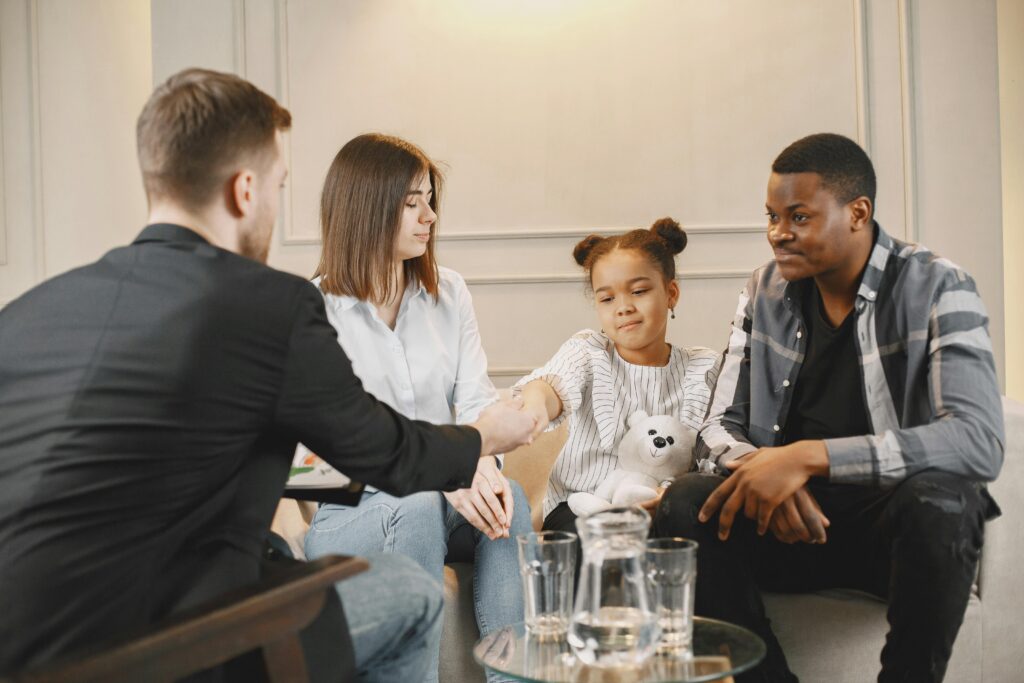Children of parents in addiction treatment face unique challenges and emotional needs that require specialized support services. Fortunately, numerous resources and programs exist specifically to help children cope with their parent’s addiction and treatment process. Understanding these options helps ensure your children receive appropriate care and support during your recovery journey.
Professional Counseling and Therapy Services
Individual therapy with counselors who specialize in children affected by parental addiction provides essential emotional support and coping strategies. These professionals understand the unique challenges children face when a parent has addiction issues and can help them process complex emotions including anger, guilt, confusion, and fear.
Child therapists use age-appropriate techniques including play therapy for younger children and talk therapy for older children and adolescents. They help children understand addiction as a disease, develop healthy coping mechanisms, and work through any trauma or behavioral issues that may have developed as a result of living with active addiction.
Family therapy sessions, when possible, can help maintain connection between you and your children during treatment while addressing family dynamics and communication patterns. Many rehab facilities offer family therapy as part of their programming, recognizing that addiction affects entire families and that family healing is crucial for long-term recovery success.
Support Groups for Children
Alateen, part of the Al-Anon family of programs, provides support groups specifically for teenagers affected by someone else’s drinking or drug use. These groups offer peer support and help adolescents realize they’re not alone in their experiences. Alateen meetings provide a safe space for teens to share their feelings and learn coping strategies from others in similar situations.
Nar-Anon family groups also offer support for family members of people with drug addiction, including specialized meetings for younger family members. These groups focus on the effects of addiction on family members and provide tools for healing and recovery.
Some communities offer specialized support groups for younger children, often facilitated by mental health professionals who understand child development and the unique needs of children affected by parental addiction.
School-Based Support Systems
School counselors and social workers can provide crucial support for children while their parent is in treatment. Many schools have experience working with students from families affected by addiction and can offer counseling services, academic support, and connections to community resources.
Teachers and school staff can be valuable allies in supporting your children’s emotional and academic needs during your treatment. When appropriate, informing key school personnel about your situation allows them to provide extra support and understanding if your children struggle with behavioral or academic issues.
Some school districts offer specialized programs or support groups for students affected by family addiction or other trauma. These programs provide peer support and education about addiction and recovery in age-appropriate ways.
Community and Religious Organizations
Many communities have organizations specifically designed to support families affected by addiction. These may include nonprofit organizations, faith-based groups, and community centers that offer programming for children and families dealing with substance abuse issues.
Religious organizations often provide support through children’s programs, counseling services, and community connections. Even if your family isn’t regularly involved in religious activities, many churches and other religious organizations welcome families in crisis and offer non-judgmental support.
Community centers, YMCAs, and other recreational organizations may offer scholarships or sliding-scale fees for children whose parents are in treatment. These programs provide positive activities and social connections that can be particularly valuable during difficult family transitions.
Extended Family and Personal Support Networks
Extended family members can provide crucial emotional and practical support for your children during your treatment. Grandparents, aunts, uncles, and other relatives who understand your situation and support your recovery can offer stability and continuity for your children.
Close family friends, neighbors, and other trusted adults in your children’s lives can also provide support and normalcy during your absence. These individuals can help maintain routines, provide transportation to activities, and offer emotional support when your children need to talk to someone outside the immediate family.
Consider creating a support network plan before entering treatment that identifies specific people who can help with different aspects of your children’s care. This might include someone who can attend school events, help with homework, provide transportation, or simply be available for emotional support when needed.
Some treatment facilities offer resources and referrals to help families identify appropriate support services for children. Case managers or social workers at treatment centers often have extensive knowledge of community resources and can help connect your family with appropriate services.
Remember that seeking support for your children while you’re in treatment isn’t a sign of weakness but rather a demonstration of your commitment to their wellbeing. Children who receive appropriate support during their parent’s treatment often develop greater resilience and understanding of recovery processes, which benefits the entire family’s long-term healing and success.
Click here to read about: Should I tell my kids I am going to rehab?
